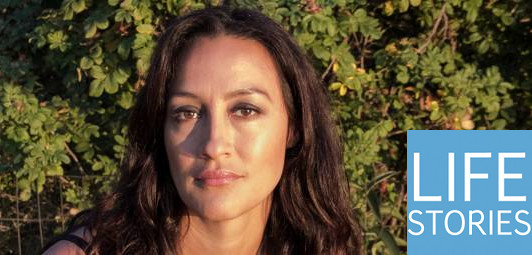Dystopia & Scale: Emmi Itäranta’s Memory of Water
Emmi Itäranta’s Memory of Water is set in a far future that, after centuries of global warming, feels almost pre-modern in many respects. In the Scandinavian village where 17-year-old Noria Kaitio lives, drinking water is rationed out in waterskins, but people still have personal electronic devices they can use to read and to communicate with each other. Adding to the time-out-of-time feel of the novel is Noria’s status as the daughter of the local tea master; as his only child, she’s been learning the rituals of the tea ceremony, even though it’s far from traditional for women to take on the position. The ceremonies are like an anchor to the past, something we can grab on to as recognizable (even if only in principle) in a strange new world. (Although the novel doesn’t explain how the Japanese tea ceremony came to be handed down through generations of a Finnish family, Itäranta did think this through, and has discussed it in interviews.)
As Noria’s father prepares her to inherit his role as tea master, he reveals the existence of a natural spring, hidden in the caves near their home. This water source needs to be kept secret from the New Qianese army that has conquered the Scandinavian Union, but that’s not the only emotional burden that it places on Noria. Itäranta pays just as much attention to her young protagonist’s more intimate crises, dovetailing them into the political dilemma in a way that fans of, say, The Handmaid’s Tale can well appreciate.
One thing that I’m learning to appreciate as I read around what we might call “dystopia†is that, although it’s set in worlds that have undergone big (literally cataclysmic) changes, the most successful stories work on a much smaller scale. Yes, the backstory of the disasters that shaped Noria’s world, or the world of Edan Lepucki’s California, is intriguing enough that we expect some details. Too much information, though, and a story risks veering into disaster porn, the bookish equivalent of special-effects explosions covering up a weak narrative.
That’s not the case here. Itäranta zooms in tightly on Noria and her immediate environment: her family, her family’s legacy, her best friend, her village. Beyond that, we know just enough to set the scene at first, then a little bit more to make the external threats to Noria credible. There is a mystery about the past that Noria uncovers, and you read because you want to learn what that’s about, but you read primarily because you want to see how Noria copes with the responsibilities that are thrust upon her.
(more…)
20 August 2014 | read this |
Life Stories #82: Maria Venegas
Subscribe to Life Stories in iTunes
In this episode of Life Stories, the podcast where I talk to memoir writers about their lives and the art of writing memoir, Maria Venegas talks about Bulletproof Vest. It’s the story of her father, who brought his family to Chicago from Mexico, but then abandoned them to avoid being arrested for killing one of their neighbors. But Venegas doesn’t just recount this and other violent episodes from his life; she also writes about the abandonment (and the eventual reconciliation) from her perspective, coming to terms with the ways her father’s past shaped her own emotional development.
During the interview, we talked about how she’d originally intended to write Bulletproof Vest as fiction, and why it ended up becoming a memoir—and about how she came to writing through acting first. It was acting, she says, that first enabled her to deal with the emotions she’d been suppressing for much of her life, but then writing enabled her to grapple with the actual sources of those emotions. And she’d only hit upon acting, she revealed, because of an elective course her last year of college, after she’d already met the requirements for her economics major. She described the impact that a class she’d only signed up for because she thought it would be fun:
“It was really exciting when I realized I could access these emotions and express myself through acting in a way that I’d never known to be possible. But, you know, with acting it’s also… you’re using your own well of emotions to fuel this other character, so you’re still slightly removed from it, whereas with writing I feel, you know, that’s me on the page, and it feels a lot more vulnerable in a way.
Listen to Life Stories #82: Maria Venegas (MP3 file); or download this file by right-clicking (Mac users, option-click). Or subscribe to Life Stories in iTunes, where you can catch up with earlier episodes and be alerted whenever a new one is released. (And if you are an iTunes subscriber, please consider rating and reviewing the podcast!)
16 August 2014 | life stories |


 Our Endless and Proper Work is my new book with Belt Publishing about starting (and sticking to) a productive writing practice.
Our Endless and Proper Work is my new book with Belt Publishing about starting (and sticking to) a productive writing practice. 
